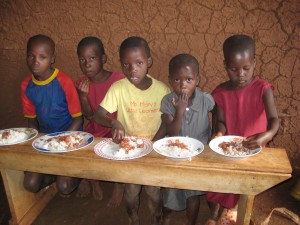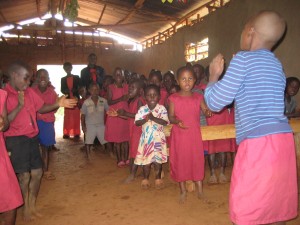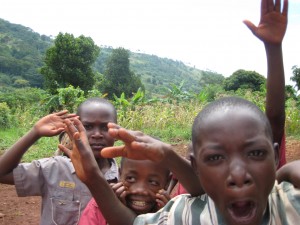Homs| Arrastan
These children were playing in front of their homes when shells hailed on them, they are now crowded in a makeshift hospital and in need of medical attention that is not available.
Hama | Sahl Al-Ghab
Today the village witnessed the execution of nine residents after Al-Tamn’ah was attacked by the regime’s forces. Amongst the casualties was an eighty five years old woman who was stabbed to death by the regime forces after they raided her property, killed her animals then brutally executed her.
Homs
The residents are trying to put up a temporary shield to protect them from the sniper’s fire at the checkpoint where many people have been killed.
Damascus Countryside | At-Tal
This leaked footage shows regime forces detaining, beating and kicking residents.
Casualty Report
39 confirmed casualties killed by the regime in Syria on Wednesday, 16 May 2012.
*Including one child, one Imam of a mosque, and another eight victims from a massacre in Joubar.*
Homs: 17
Dar’aa: 4
Hama: 3
Damascus & Damascus Suburbs: 11
Idlib: 5
20 confirmed casualties killed by the regime in Syria on Tuesday, 15 May 2012.
*Including a child, an Imam of a mosque, and six other victims from a massacre at Khan Sheikhoun.*
Homs: 13
Dar’aa: 4
Hama: 1
Damascus & Damascus Suburbs: 1
Idlib: 1
22 confirmed casualties killed by the regime in Syria on Monday, 14 May 2012.
*Including two old men, two children, a defected officer, four defected conscripts, and two men killed under torture.*
Homs:14
Dar’aa: 3
Hama: 1
Dier Ezzor: 1
Aleppo: 1
Latakia: 1
33 confirmed casualties killed by the regime in Syria on Sunday 13 May 2012.
*Including six women (one elderly), two children, a defected first lieutenant, first sergeant, and a conscript.*
Dar’aa: 3Qunaitirah: 1Homs: 7Damascus & Damascus Suburbs: 3Dier Ezzor: 3Hama: 9Idlib: 4Aleppo: 3
Videos and Statistics Courtesy of :
Syrian Network of Human Rights – Casualty Report – 16 May 2012
Syrian Network of Human Rights – Violations Report – 16 May 2012
Syrian Network of Human Rights – Casualty Report – 15 May 2012
Syrian Network of Human Rights – Violations Report – 15 May 2012
Syrian Network of Human Rights – Casualty Report – 14 May 2012
Syrian Network of Human Rights – Violations Report – 14 May 2012
Syrian Network of Human Rights – Casualty Report – 13 May 2012
Syrian Network of Human Rights – Violations Report – 13 May 2012



